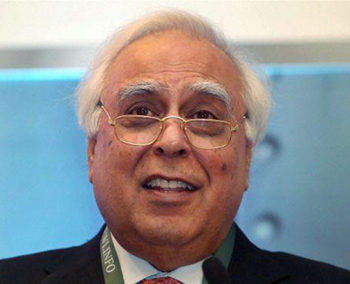
New Delhi, November 23: India’s proposal on the International Telecommunications Regulations (ITRs), submitted to the International Telecommunications Union (ITU), is far from the last word on the matter, Telecom Minister Kapil Sibal has said.
Mr. Sibal’s remark offers immense relief to Indian citizens and the Internet industry, especially Internet and mobile service providers, social media and other companies that are part of the Internet ecosystem.
The proposal, submitted to the United Nations body last month, has drawn opposition from, and sparked fears of content control among, civil society and the industry alike.
Mr. Sibal told The Hindu that the proposal was “a preliminary response rather than a final view. Any imperfections in our stance will be corrected through consultation with the industry and civil society as per my commitment to a multi-stakeholder, consensus-based governance model.”
His comments come at a critical time — immediately after the arrest of two young girls for posting and supporting content linked to the shutdown in Mumbai on the day of Shiv Sena supremo Bal Thackeray’s funeral. The media and civil society groups have expressed outrage over the Maharashtra police’s overreach.
Mr. Sibal recently led an Indian delegation to Baku, Azerbaijan, which hosted the world’s largest multi-stakeholder conference: the Internet Governance Forum. Speaking at the inaugural session on November 6, he said the Internet and governance were oxymorons, and the need of the hour was a process “which is collaborative, consultative, inclusive and consensual for dealing with all public policies involving the Internet.”
However, the Department of Telecom (DoT) simultaneously submitted its proposal, dated November 3, on the ITRs — without any discussion with civil society, the academia or experts.
The industry, whose comments were sought, further claims lack of consensus since the proposal has taken in only a handful of its inputs, while having potentially harmful and restrictive language.
While the ITU discussions fall within the DoT’s domain, the Telecom Regulatory Authority of India (TRAI) has maintained uneasy silence and failed to open any consultation, in sharp contrast to its counterparts worldwide.
In existence since 1998, the ITRs are a binding treaty governing the global telecommunications network and standards, which are being revised after 24 years.
Russia, China, Uzbekistan, Tajikistan and several Arab countries seek to bring major aspects of Internet governance within the jurisdiction of the ITU, sparking fears that the ITRs will slide into content regulation, surveillance and takedowns, while adversely impacting free speech and costs.
Industry bodies such as the Cellular Operators Association of India (COAI), the National Association of Software and Services Companies (NASSCOM), the Internet & Mobile Association of India (IAMAI), the Federation of Indian Chambers of Commerce and Industry (FICCI) and the Association of Competitive Telecom Operators (ACTO) have sought meetings with the government in an attempt to persuade it to reconsider the proposal, which they think could fundamentally and permanently alter the way the sector is governed.







Comments
Add new comment